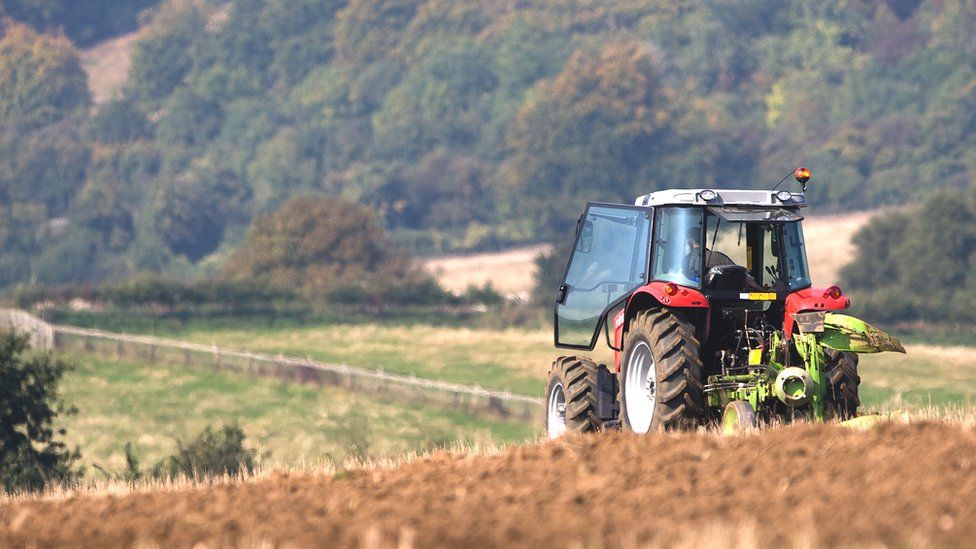By Helen BriggsEnvironment correspondent

Backing farmers will be at the heart of England's new food strategy, the prime minister has announced.
Under the plans, farmers are set to produce more home-grown food to help guard against future economic shocks, Boris Johnson has pledged.
Full details of the proposals will be published later on Monday.
A leaked draft version of the report has been slated by critics. Labour said it failed to deliver "much more than a new slogan".
And environmental groups have accused the government of rowing back on green ambitions.
Announcing the blueprint, Mr Johnson said it set out "how we will back farmers, boost British industry and help protect people against the impacts of future economic shocks by safeguarding our food security".
The PM added: "Harnessing new technologies and innovation, we will grow and eat more of our own food - unlocking jobs across the country and growing the economy, which in turn will ultimately help to reduce pressure on prices."
The strategy also includes plans to:
- Consult on an ambition for 50% of public sector food spend to go on food produced locally or certified to higher standards
- Publish a framework for land use in England next year
The policy paper follows an independent review of the food system by restaurateur Henry Dimbleby who made a raft of recommendations around farming, environmental issues and health.
Mr Dimbleby called for the taxing of salt and sugar in processed foods and a move towards more sustainable food production, including protecting the budget for farm payments until at least 2029.
He told the BBC that less than 50% of his recommendations had been adopted, but progress had been made.
The final version of the report has not yet been published, but a leaked draft that emerged in recent days has been described as "half baked" and "watered down" by campaigners.
Joan Edwards, director of policy and public affairs at conservation charity, The Wildlife Trusts, said the landmark review had recommended a greater emphasis on protecting nature and the climate in farming, but she feared the government was "watering down" its approach.
"We don't have a food security issue now, but unless we deal with the climate and nature crises we will have a food security issue in 10 or 15 years' time," she said.
The president of the National Farmers' Union, Minette Batters, broadly welcomed the commitment to food production and food security, but said this was dependent on the policies put in place to deliver it.
"It's vital that food stays affordable and vital that social policies are in place for access to high quality food," she told BBC News.
Sue Davies of consumer group, Which?, said the strategy lacked ambition and many of the recommendations made by the government's independent adviser on how the food system can be healthier for people and the planet, had been "watered down, ignored or put off for further consultation".
The independent National Food Strategy was commissioned in 2019 by the then environment secretary, Michael Gove, and has produced two reports.
Follow Helen on Twitter.
- LIQUID DIET: Are meal replacement drinks be good for you?
- 'YOU NEED KINDNESS, BUT TOUGHNESS TOO': The day in the life of a school attendance officer
-
- 1 day ago
-
- 15 July 2021
-
- 14 July 2021
Related Topics
from Via PakapNews